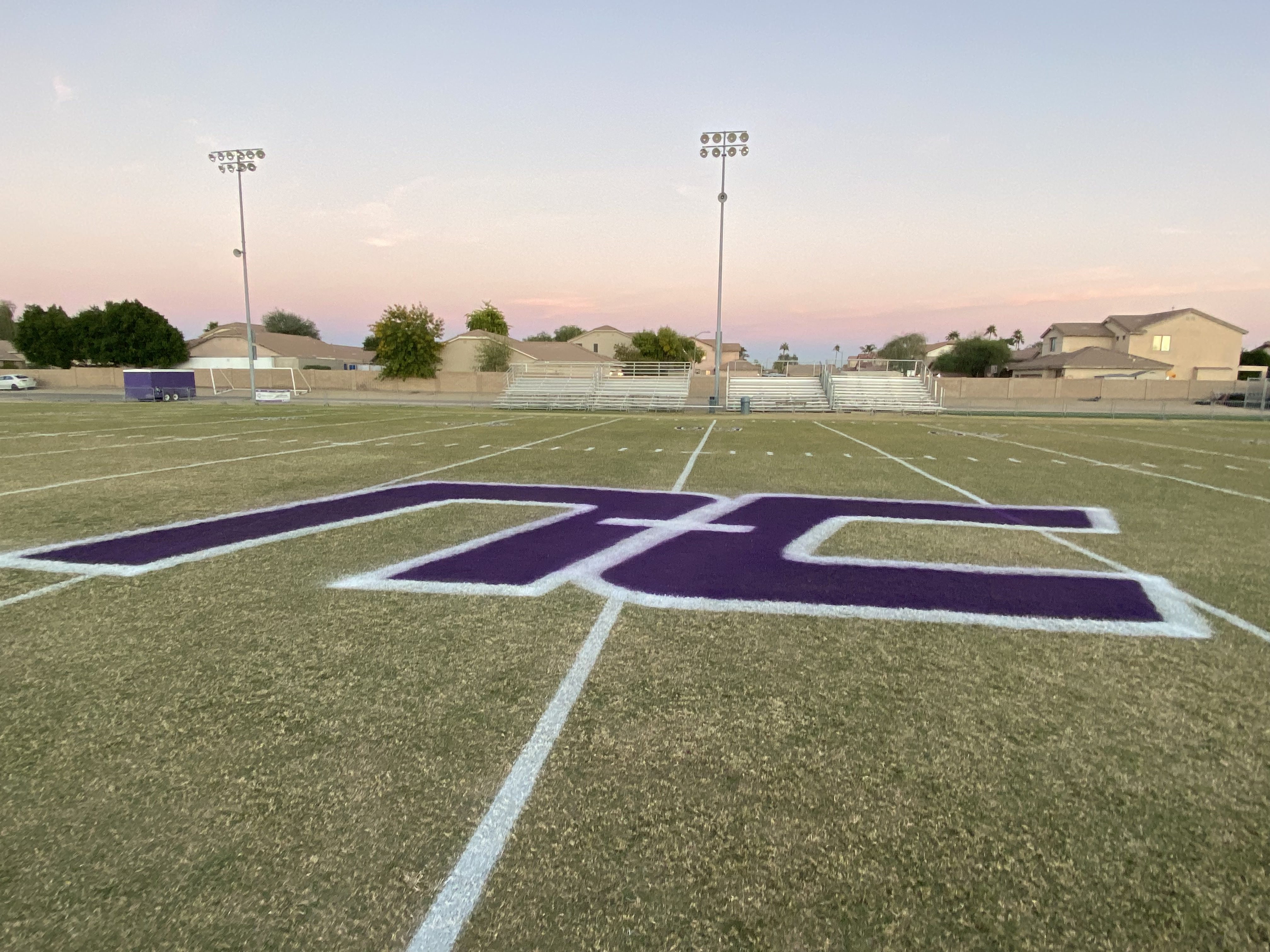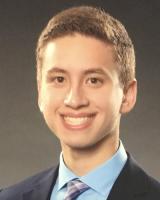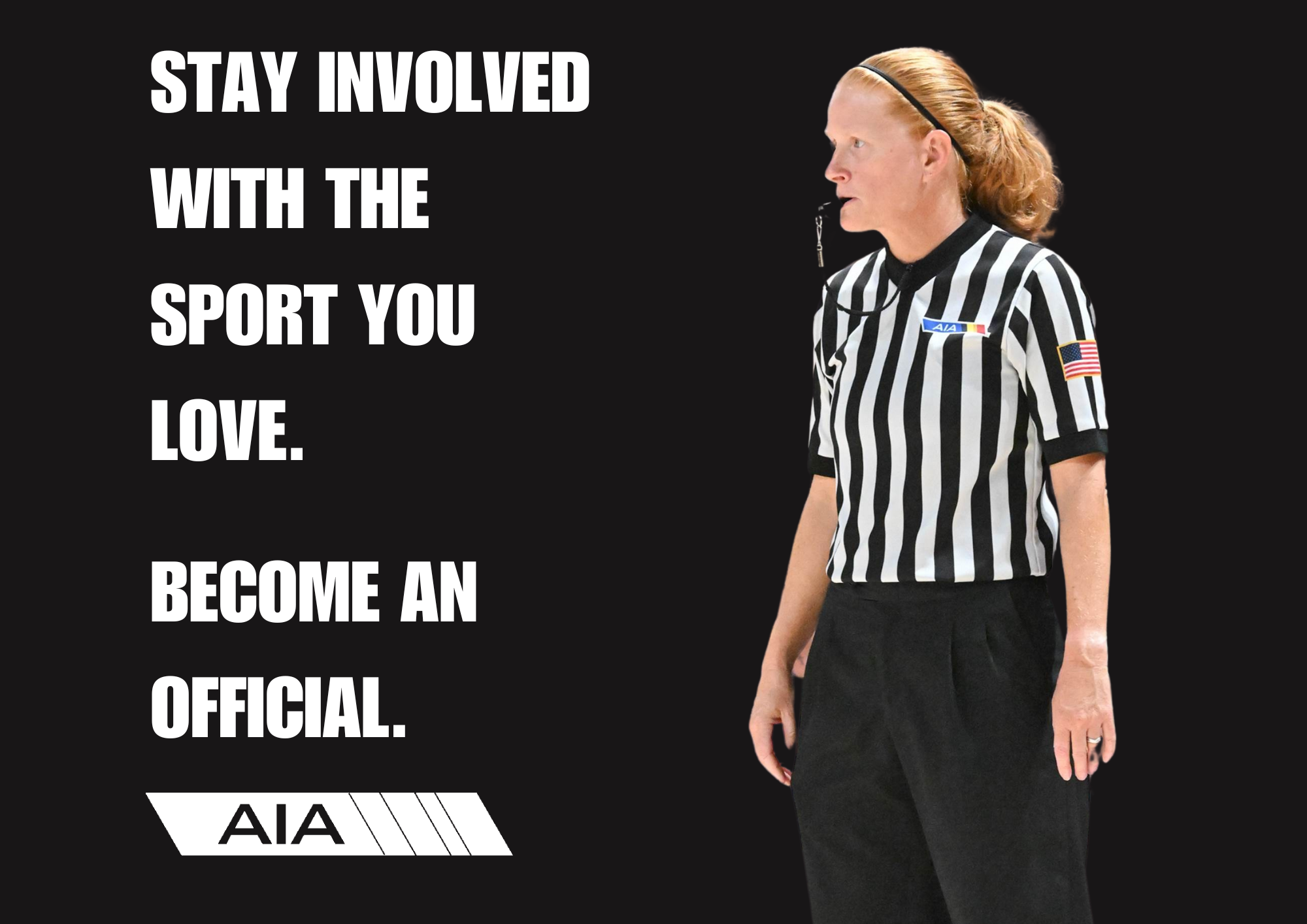‘We’re just different here’: Northwest Christian football continues to buck national participation trend
December 10, 2021 by Jonah Krell, Arizona State University

Jonah Krell is an ASU Cronkite School of Journalism student assigned to cover Northwest Christian for AZPreps365.com.
Jonathan Bowen was a basketball player. Gavin Lentz could kick but never was a punter or played soccer. Noah Larson was at a different school longing for more sports options.
In a span of a few years, all three of them picked up tackle football for the first time and now play together on the Northwest Christian varsity team. These are just three Crusaders’ stories among many, and they are a part of the reason the program stands out, going against the grain of a nationwide trend of declining participation in the sport.
“I’m not saying we’re special, [we’re] just different here,” head coach David Inness said.
In order to understand why this holds true, one must go back to the 2008-09 season, two years before Inness arrived at Northwest Christian. In its annual participation survey, the National Federation of State High School Associations found that 11-player football had an all-time participation level of over 1.1 million. Since then, participation in high school football has declined in 10 of the past 11 years.
Popular hypotheses for why this has occurred include the gradual specialization of athletes to a single sport, video games and social media, but one of the main reasons is the association between football and head injuries. In 2005, medical researchers produced the first evidence of the degenerative brain disease CTE and tied it to the repeated head trauma seen in football players. It is also now recommended that an adolescent needs twice as much time to recover from concussions than an adult.
These findings struck a chord with the parents of today’s youth, and the participation numbers have supported it. From 2016 to 2018, the NFHS reported declines of more than 20,000 players each year in high school 11-player football. Throughout the decade-long plunge in participation, states enacted laws and the NFHS implemented new procedures to better manage the risk of concussions among high school athletes.
While participation numbers still dropped by 2,489 players in 2019, that was the smallest decline seen in 10 years, according to the most recent NFHS survey. The participation survey could not be completed in 2020 or 2021 due to the COVID-19 pandemic.
When considering the long downward trend in participation and the impact of COVID-19, it is quite remarkable that the opposite effect has occurred at Northwest Christian. In Inness’ first year in 2010, he fielded a varsity and JV team with 29 athletes in the entire program. When one of the teams was playing a game, he would have nine players at practice on Mondays.
Now in his 12th year, Inness said that 93 players – out of 225 students in the school – showed up for the first stage of tryouts before the 2021 season. Inness said he doesn’t “have the room” to keep everyone who tried out, and brought about 70 of them to training camp.
“(The high participation numbers are) because they want to be a part of something,” Inness said. “At a smaller school, it’s easier to be a part of something. They're not just a number, they’re a name. They know if they play on the younger team, and they show up and work hard every day, they’re going to play in every game.
“Big schools don’t do that. They don’t because their numbers are big and they just move on to the next dude. Here, you feel a part of it. … You’re a part of the football program. And we’re all one.”
While his culture is the foundation, Inness’ strategy for actively boosting those numbers could be just as effective. He and his coaching staff target students who have never played the game before and they teach them what they need to know from scratch – from how to put on their uniform and pads to getting in a three-point stance. One year, Inness said he had 16 first-time football players on his team, with five of them coming from the school band. He says getting these types of players is “the only way our program survives.”
Junior varsity head coach Jim James, who is also the Dean of Students at Northwest Christian, is a key part of the program as well. James said he and his staff’s role “is to develop these kids to play on Friday nights,” meaning he prepares them to play for Inness’ varsity team. Inness and James both do the behind-the-scenes work, talking to new students and parents to encourage them to try out football.
“I think it’s the full acceptance of, ‘Come out and join us. Be a part of a team,’” James said. “[We] try to make it a fun experience for these kids and get as many kids as we can. I think the kids and the parents buy into that.”
This season, James had about 15 players who had never played football before. However, this learning gap has never affected the performance of the JV team, which had lost an astounding two games in 10 years before this season.
With a solid mix of first-time players and ones that have been playing since their Pop Warner days, it could be challenging to balance such vastly different experience levels. James has his own operation that players on JV and varsity buy in to to make the relationship work.
“I tell (the more experienced players), this is not about them,” James said. “We've got all these little mini-coaches out there running around that know, ‘Hey, this kid's never played that's lining up next to me. I'm going to make sure I don't just worry about me, but I worry about everybody else on the team as well.’ That's how we do it.”
Senior captains of the varsity team, like running backs Alex Jeffries and Grant Gibson, recognize the challenge involved in this but embrace it.
“I’m not going to lie to you, it’s been difficult sometimes,” Jeffries said. “But it’s also fun too, because you get to show them how much fun football can be and encourage them, and just put that fire in them that allows them to play their best. … It’s different than any other sport you can play.”
One of the first-time players this year was junior lineman Jonathan Bowen, who also plays basketball and volleyball at Northwest Christian. For two years, Inness tried to recruit Bowen to try out football, but he always said his parents wouldn’t let him.
Michelle and Chris Bowen, Jonathan’s parents, had the same worries that parents had across the nation with CTE.
Inness was able to ease their concerns when he finally met with them. He explained how he teaches his players to properly hit and the limited contact in practices. Michelle Bowen said what truly validated her and her husband’s decision was that “(the coaching staff) really took an investment in (Jonathan) as a person” in tryouts, texting him to make sure he was feeling good throughout the process.
Inness, who is also the school’s athletic director, is somehow able to balance his attention among all the sports and still show a personal touch for his football players, which made the difference for Michelle.
“He makes it look fun,” she said. “The man has more energy than I’ve ever seen on anyone. I always joke to my husband, ‘He needs roller skates to zip around the campus.’
“He just loves those boys, and they want to play for him. … ‘Come and do this, then we’ll grow together.’”
Junior kicker Gavin Lentz has a similar story. His parents also did not allow him to play tackle football until high school.
Lentz, who had no experience playing soccer, showed up during the summer before his freshman season and began punting balls just for fun on the baseball field. He was nonchalantly kicking them over the left-field fence from the edge of the infield. James noticed and asked the freshman how he was doing this.
Lentz’s response: “I just like to kick the ball around. … Don’t worry, I’ll go get it.”
After seeing some varsity playing time last year, Lentz is now the starting kicker in addition to playing linebacker and wide receiver.
Noah Larson is a bit of a different story. Before his junior year, he attended Paradise Valley Christian Prep, a small private K-12 school where Larson claims there were at most 70 kids in high school. With PVCP not having a football team, he searched for a bigger school with more sports. Despite only having played flag football like Lentz, Northwest Christian welcomed him with open arms.
“It’s a lot different from what I’ve ever done,” Larson said. “The camaraderie is just unmatched.”
The brotherhood aspect of football is part of what has drawn first-time players to Northwest Christian, with Lentz saying, “It’s truly a different program than what I’ve seen from other high schools.”
Perhaps the greatest impact that football has had on the new players is that it has positively changed them. Inness says he gets many calls from parents saying, “I don’t know what you guys are doing over there, but my son’s a different person at home.”
For Bowen, Lentz and Larson, they all admit playing football has made them tougher and more resilient, especially during a losing season filled with brutal injuries. The Crusaders’ competition also plays a factor, as they are playing bigger schools with bigger players.
Confidence is another common trait that they have learned on and off the field. For Lentz, the key for him is “having a short-term memory” and knowing he is going to make an important kick. With Jonathan, Michelle Bowen has noticed an indescribable confidence off the field.
“That was something I've been praying specifically for him about, was just that the Lord would bring a confidence to him as he ages,” she said. “He was very shy … I don't know, it's just a change. It's weird to use this word for a boy, but he's blossomed. And he's grown. He's just becoming a man, if you will.”
As with Jonathan’s story, Northwest Christian’s impact is a two-way street. Inness molds motivated, tough players for his team, and they have come out better for it. With this cultural bedrock firmly in place and the numbers reflecting success, Michelle Bowen has a message for worried parents.
“It’s a great opportunity,” Bowen said. “So if somebody is thinking about it, and they're a little nervous for their son to play, I would say it's okay. They’ll be good playing for the coaching staff at Northwest.”


